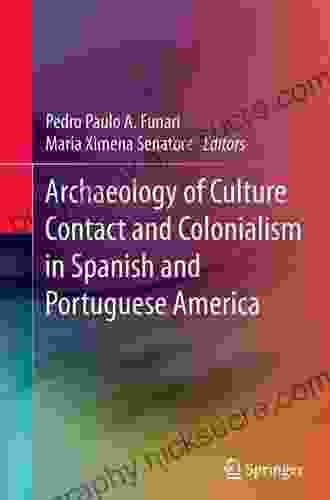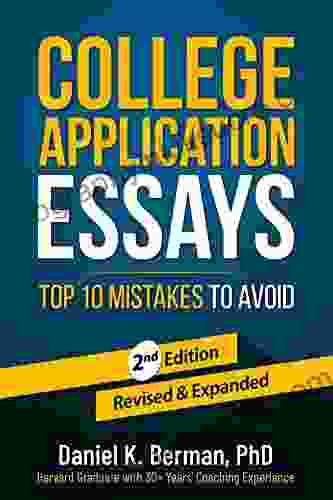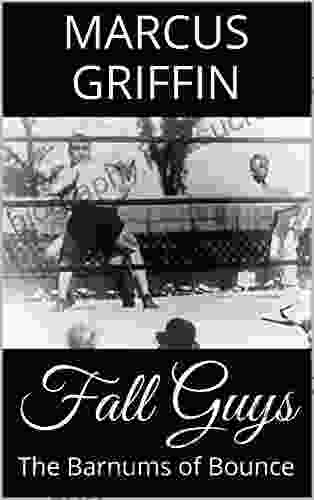Archaeology Of Culture Contact And Colonialism In Spanish And Portuguese America

The arrival of Europeans in the Americas in the 15th century marked the beginning of a period of profound cultural contact and colonialism that would have a lasting impact on both the indigenous populations and the newcomers. This period saw the establishment of new political and economic systems, the of new technologies and ideas, and the displacement and marginalization of indigenous peoples.
Archaeology has played a vital role in understanding the complex processes of culture contact and colonialism in Spanish and Portuguese America. By excavating and analyzing the material remains of this period, archaeologists have been able to shed light on the interactions between indigenous and European cultures, the impact of colonialism on indigenous societies, and the development of new cultural identities.
Archaeology Of Culture Contact And Colonialism In Spanish America
The Spanish conquest of the Americas began in 1519 with the arrival of Hernán Cortés in Mexico. Over the next century, the Spanish would establish a vast empire that stretched from the present-day southwestern United States to the southern tip of South America. The Spanish conquest had a devastating impact on indigenous populations, who were decimated by disease, warfare, and forced labor.
5 out of 5
| Language | : | English |
| File size | : | 9823 KB |
| Text-to-Speech | : | Enabled |
| Screen Reader | : | Supported |
| Enhanced typesetting | : | Enabled |
| Print length | : | 571 pages |
Archaeological research has documented the profound changes that occurred in indigenous societies as a result of Spanish contact. In some cases, indigenous communities were completely destroyed, while in others they were able to survive and adapt to the new political and economic realities.
One of the most important archaeological sites for understanding culture contact and colonialism in Spanish America is the city of Tenochtitlan, the capital of the Aztec Empire. Tenochtitlan was a vast city, with a population of over 200,000 people. The city was destroyed by the Spanish in 1521, but archaeological excavations have revealed the extent of its wealth and sophistication.
Archaeological research has also been conducted at other Spanish colonial sites, such as the city of Potosí in Bolivia. Potosí was a major silver mining center, and its wealth attracted people from all over the world. The archaeological record from Potosí provides insights into the lives of the miners, who were often forced laborers.
Archaeology Of Culture Contact And Colonialism In Portuguese America
The Portuguese conquest of Brazil began in 1500 with the arrival of Pedro Álvares Cabral. The Portuguese established a colony in Brazil that would eventually become the largest country in South America. The Portuguese conquest had a less devastating impact on indigenous populations than the Spanish conquest, but it still led to significant changes in indigenous societies.
Archaeological research in Portuguese America has focused on the interactions between indigenous and European cultures. One of the most important sites for this research is the city of Salvador, the capital of the Portuguese colony. Salvador was a major port city, and its archaeological record provides insights into the trade and cultural exchange that took place between indigenous and European peoples.
Archaeological research has also been conducted at other Portuguese colonial sites, such as the city of São Paulo. São Paulo was a major center of the sugar industry, and its archaeological record provides insights into the lives of the enslaved Africans who worked on the plantations.
The Legacy Of Colonialism
The legacy of colonialism in Spanish and Portuguese America is complex and multifaceted. On the one hand, colonialism led to the destruction of indigenous societies and the displacement of indigenous peoples. On the other hand, colonialism also led to the of new technologies and ideas, which helped to shape the development of modern Latin America.
Archaeology has played a vital role in understanding the legacy of colonialism in Spanish and Portuguese America. By excavating and analyzing the material remains of this period, archaeologists have been able to shed light on the complex processes of culture contact and colonialism, and their lasting impact on the region.
5 out of 5
| Language | : | English |
| File size | : | 9823 KB |
| Text-to-Speech | : | Enabled |
| Screen Reader | : | Supported |
| Enhanced typesetting | : | Enabled |
| Print length | : | 571 pages |
Do you want to contribute by writing guest posts on this blog?
Please contact us and send us a resume of previous articles that you have written.
 Fiction
Fiction Non Fiction
Non Fiction Romance
Romance Mystery
Mystery Thriller
Thriller SciFi
SciFi Fantasy
Fantasy Horror
Horror Biography
Biography Selfhelp
Selfhelp Business
Business History
History Classics
Classics Poetry
Poetry Childrens
Childrens Young Adult
Young Adult Educational
Educational Cooking
Cooking Travel
Travel Lifestyle
Lifestyle Spirituality
Spirituality Health
Health Fitness
Fitness Technology
Technology Science
Science Arts
Arts Crafts
Crafts DIY
DIY Gardening
Gardening Petcare
Petcare Craig Lambert
Craig Lambert Barry Friedman
Barry Friedman Barry Glassner
Barry Glassner Mike Stanton
Mike Stanton Jim Fay
Jim Fay Jutta Schickore
Jutta Schickore Jonathan Bergmann
Jonathan Bergmann Khurshed Batliwala
Khurshed Batliwala Diane Cardwell
Diane Cardwell Jessica Smartt
Jessica Smartt Linda Carroll
Linda Carroll John H Mcwhorter
John H Mcwhorter Kate Williams
Kate Williams Craig Martin
Craig Martin Macauley Lord
Macauley Lord Stephen J Bavolek
Stephen J Bavolek Crystal Duffy
Crystal Duffy Dave Rearwin
Dave Rearwin Ralph Galeano
Ralph Galeano Stephanie Fritz
Stephanie Fritz Daniel J Barrett
Daniel J Barrett Daniel P Huerta
Daniel P Huerta Jim Wharton
Jim Wharton Steven Rinella
Steven Rinella Gary Lincoff
Gary Lincoff John G Robertson
John G Robertson Jean Smith
Jean Smith Donald Frias
Donald Frias Joshua Hammer
Joshua Hammer Lawrence Baldassaro
Lawrence Baldassaro Margaret Owen
Margaret Owen Mina Lebitz
Mina Lebitz Jeff Alt
Jeff Alt Robert Hogan
Robert Hogan Bill Milliken
Bill Milliken Graham R Gibbs
Graham R Gibbs Mike Allison
Mike Allison Deanna Roy
Deanna Roy Mike Loades
Mike Loades Ian Leslie
Ian Leslie Tim Marshall
Tim Marshall Rick Joyner
Rick Joyner Helen Fisher
Helen Fisher Beau Miles
Beau Miles Erica Schultz
Erica Schultz Peter Martin
Peter Martin Daniel T Willingham
Daniel T Willingham William Byers
William Byers David Klausmeyer
David Klausmeyer Diane Yancey
Diane Yancey Jean Illsley Clarke
Jean Illsley Clarke Susan Scott
Susan Scott Catherine J Allen
Catherine J Allen Visual Arts
Visual Arts Blair Braverman
Blair Braverman Jesse Liberty
Jesse Liberty William H Frey
William H Frey Thomas Bulfinch
Thomas Bulfinch Casey Watson
Casey Watson Scott Malthouse
Scott Malthouse Yuval Noah Harari
Yuval Noah Harari Elizabeth George Speare
Elizabeth George Speare Peter Wacht
Peter Wacht Bashir Hosseini Jafari
Bashir Hosseini Jafari Larry Dane Brimner
Larry Dane Brimner Barbara Taylor
Barbara Taylor Beth Miller
Beth Miller Beau Bradbury
Beau Bradbury Janna Levin
Janna Levin Helen Kara
Helen Kara Barzin Pakandam
Barzin Pakandam Nick Bollettieri
Nick Bollettieri Kam Knight
Kam Knight Allan V Horwitz
Allan V Horwitz Chris Bennett
Chris Bennett Michael Wood
Michael Wood Farzana Nayani
Farzana Nayani Nicholas Sparks
Nicholas Sparks Ben Sedley
Ben Sedley Toby A H Wilkinson
Toby A H Wilkinson Monta Z Briant
Monta Z Briant Jane Butel
Jane Butel Marie Rutkoski
Marie Rutkoski Elliott Vandruff
Elliott Vandruff Editors Of Southern Living Magazine
Editors Of Southern Living Magazine Jenny Chandler
Jenny Chandler Rebecca Solnit
Rebecca Solnit Peter K Tyson
Peter K Tyson T C Edge
T C Edge S E Hinton
S E Hinton Simon Spurrier
Simon Spurrier Harvey Wittenberg
Harvey Wittenberg Jeff Belanger
Jeff Belanger Ryan T White
Ryan T White Dr Craig Malkin
Dr Craig Malkin Vanessa Garbin
Vanessa Garbin Edith Grossman
Edith Grossman Robin Knox Johnston
Robin Knox Johnston Scott Westerfeld
Scott Westerfeld Paul Doiron
Paul Doiron Joseph Schmuller
Joseph Schmuller Jayanti Tambe
Jayanti Tambe Bridget Flynn Walker Phd
Bridget Flynn Walker Phd Tami Anastasia
Tami Anastasia Ken Xiao
Ken Xiao Ben Povlow
Ben Povlow Bagele Chilisa
Bagele Chilisa Daniel S Lobel Phd
Daniel S Lobel Phd Babu The Panda
Babu The Panda Nick Townsend
Nick Townsend Lewis Thomas
Lewis Thomas Wanda Priday
Wanda Priday Massimo Cossu Nicola Pirina
Massimo Cossu Nicola Pirina Shayla Black
Shayla Black Bryan Peterson
Bryan Peterson Jennifer Estep
Jennifer Estep Prince Asare
Prince Asare Ron Avery
Ron Avery Mary A Fristad
Mary A Fristad Richard Scott
Richard Scott John Henry Phillips
John Henry Phillips Thomas French
Thomas French David Abram
David Abram Scott Mactavish
Scott Mactavish Jaymin Eve
Jaymin Eve Anthony Edwards
Anthony Edwards Jack Andraka
Jack Andraka Leonard M Adkins
Leonard M Adkins Kit Yates
Kit Yates David Thomas
David Thomas Mick Conefrey
Mick Conefrey Kara Tippetts
Kara Tippetts Catherine Shainberg
Catherine Shainberg Tom Miller
Tom Miller Malcolm Hebron
Malcolm Hebron Jay Abramson
Jay Abramson Yang Kuang
Yang Kuang Craig Romano
Craig Romano W Hamilton Gibson
W Hamilton Gibson Gabriyell Sarom
Gabriyell Sarom Lynn Mann
Lynn Mann Nicholas Wolterstorff
Nicholas Wolterstorff Siddhartha Rao
Siddhartha Rao Linda Welters
Linda Welters Shmuel Peerless
Shmuel Peerless Daniel M Koretz
Daniel M Koretz Alastair Hannay
Alastair Hannay Hunbatz Men
Hunbatz Men Robert Ardrey
Robert Ardrey Michael Palin
Michael Palin Martin Dugard
Martin Dugard Gay Robins
Gay Robins Becca Anderson
Becca Anderson Cheryl Erwin
Cheryl Erwin Ben Goldacre
Ben Goldacre John Aldridge
John Aldridge David Jamieson Bolder
David Jamieson Bolder Betty Stone
Betty Stone John C Norcross
John C Norcross Kathleen Masters
Kathleen Masters James Koeper
James Koeper Wayne B Chandler
Wayne B Chandler Rachel Smith
Rachel Smith Vincent Bossley
Vincent Bossley Smart Reads
Smart Reads Danny Staple
Danny Staple Julie Buxbaum
Julie Buxbaum J Bruce Brackenridge
J Bruce Brackenridge Mark Rashid
Mark Rashid James Randi
James Randi Dustin Salomon
Dustin Salomon Linnea Dunne
Linnea Dunne Conor Nolan
Conor Nolan Rachel Morgan
Rachel Morgan Dan Golding
Dan Golding Ronald Wheeler
Ronald Wheeler Basu Shanker
Basu Shanker Laura Ingalls Wilder
Laura Ingalls Wilder Leon Mccarron
Leon Mccarron Brian Gilbert
Brian Gilbert Roy Porter
Roy Porter Fabien Clavel
Fabien Clavel Suzanne Wylde
Suzanne Wylde Debbie M Schell
Debbie M Schell James M Collins
James M Collins Victor Seow
Victor Seow Joseph Alton M D
Joseph Alton M D T H White
T H White Kindle Edition
Kindle Edition Kate Darling
Kate Darling Emma Walker
Emma Walker Trish Kuffner
Trish Kuffner Marshall Jon Fisher
Marshall Jon Fisher Richard H Immerman
Richard H Immerman Bobbie Faulkner
Bobbie Faulkner John Kimantas
John Kimantas Mark Young
Mark Young Charles River Editors
Charles River Editors Justin Sirois
Justin Sirois Scott Reed
Scott Reed Rob Hutchings
Rob Hutchings Sport Hour
Sport Hour James Duthie
James Duthie Emily Chappell
Emily Chappell Barry J Kemp
Barry J Kemp Chiara Sparks
Chiara Sparks Gordon Witteveen
Gordon Witteveen Geert Hofstede
Geert Hofstede Reelav Patel
Reelav Patel Barry Rhodes
Barry Rhodes Stanislas Dehaene
Stanislas Dehaene Percy Boomer
Percy Boomer Eric Leiser
Eric Leiser Donald R Gallo
Donald R Gallo Jen Houcek
Jen Houcek Bernard Marr
Bernard Marr David Beaupre
David Beaupre Karen Bush
Karen Bush David Taylor
David Taylor Frederick Douglass Opie
Frederick Douglass Opie Richard Meadows
Richard Meadows Nadine Hays Pisani
Nadine Hays Pisani David A Bogart
David A Bogart Barbara Bassot
Barbara Bassot Nichole Carpenter
Nichole Carpenter Mike Massie
Mike Massie Luke Gilkerson
Luke Gilkerson Mike High
Mike High Nina Manning
Nina Manning Violet Moller
Violet Moller Pat Shipman
Pat Shipman Paul Van Lierop
Paul Van Lierop Michelle Rigler
Michelle Rigler Jade Barrett
Jade Barrett Geoffrey Finch
Geoffrey Finch Christopher L Heuertz
Christopher L Heuertz Lynn Rosen
Lynn Rosen Philip Maffetone
Philip Maffetone Baruch Englard
Baruch Englard Mark Mayfield
Mark Mayfield Matt Taddy
Matt Taddy Samantha Fitts
Samantha Fitts Meghan L Marsac
Meghan L Marsac Kyle Butler
Kyle Butler Sam Kean
Sam Kean Titus M Kennedy
Titus M Kennedy Bb
Bb Eugene V Resnick
Eugene V Resnick Breanna Hayse
Breanna Hayse Susan Dennard
Susan Dennard Jill Brown
Jill Brown Charlotte Booth
Charlotte Booth Eliza Reid
Eliza Reid Richard Harris
Richard Harris Rachel Dash
Rachel Dash James Syhabout
James Syhabout Steven Bell
Steven Bell George Macdonald
George Macdonald Joshua G Shifrin
Joshua G Shifrin Jane Hardwicke Collings
Jane Hardwicke Collings Rob Rains
Rob Rains Chris Mooney
Chris Mooney Erik J Brown
Erik J Brown David Burch
David Burch Ben Collins
Ben Collins Pearson Education
Pearson Education Howard Zinn
Howard Zinn Dr Faith G Harper
Dr Faith G Harper Oliver T Spedding
Oliver T Spedding Suzanne Leonhard
Suzanne Leonhard Carlo Collodi
Carlo Collodi S K Gupta
S K Gupta Clifford Herriot
Clifford Herriot Cindy Post Senning
Cindy Post Senning Graham Farmelo
Graham Farmelo John Garrity
John Garrity Tara Brach
Tara Brach Mike Swedenberg
Mike Swedenberg Barbara Mertz
Barbara Mertz Farley Mowat
Farley Mowat Chris Cage
Chris Cage Chadd Vanzanten
Chadd Vanzanten Barbara Neiman
Barbara Neiman Jenna Helland
Jenna Helland Rachelle Zukerman
Rachelle Zukerman John Lister Kaye
John Lister Kaye Dave Karczynski
Dave Karczynski Tori Day
Tori Day Burt L Standish
Burt L Standish Gerald Beaudry
Gerald Beaudry J Michael Veron
J Michael Veron Timothy Pakron
Timothy Pakron Rob Pope
Rob Pope Kara Goucher
Kara Goucher Denton Salle
Denton Salle Dustin Hansen
Dustin Hansen P J Agness
P J Agness Diane Musho Hamilton
Diane Musho Hamilton Richard J Dewhurst
Richard J Dewhurst Grey Owl
Grey Owl Jennifer Traig
Jennifer Traig Mark Ellyatt
Mark Ellyatt Elizabeth Lockwood
Elizabeth Lockwood Barbara Rogoff
Barbara Rogoff Mark H Newman
Mark H Newman Jude Currivan
Jude Currivan Mitch Prinstein
Mitch Prinstein Lily Collins
Lily Collins Nancy E Willard
Nancy E Willard Mark Kurlansky
Mark Kurlansky Stephen K Sanderson
Stephen K Sanderson Reprint Edition Kindle Edition
Reprint Edition Kindle Edition Barbara Kennard
Barbara Kennard Yuki Mano
Yuki Mano Stefan Ecks
Stefan Ecks Constanze Niedermaier
Constanze Niedermaier John Whitman
John Whitman John D Barrow
John D Barrow Robert A Baruch Bush
Robert A Baruch Bush Fred Mitchell
Fred Mitchell Richard Weissbourd
Richard Weissbourd Nick Neely
Nick Neely Dacher Keltner
Dacher Keltner Proper Education Group
Proper Education Group Ellen Notbohm
Ellen Notbohm Kenneth Wilgus Phd
Kenneth Wilgus Phd Richard Chun
Richard Chun Barry Johnston
Barry Johnston Cait Stevenson
Cait Stevenson Charlotte Browne
Charlotte Browne Roanne Van Voorst
Roanne Van Voorst Sam Nadler
Sam Nadler Mark Twain
Mark Twain Erica B Marcus
Erica B Marcus Charles Buist
Charles Buist Marco Grandis
Marco Grandis Christopher Taylor Ma Lmft
Christopher Taylor Ma Lmft Gary Soto
Gary Soto Lew Freedman
Lew Freedman Bill Mckibben
Bill Mckibben Ray Comfort
Ray Comfort Jack Newman
Jack Newman Sam Harris
Sam Harris Edwin R Sherman
Edwin R Sherman Stan Tekiela
Stan Tekiela Susan Nance
Susan Nance Melissa Haag
Melissa Haag Ryan A Pedigo
Ryan A Pedigo Benita Bensch
Benita Bensch Debra Kilby
Debra Kilby Chase Hill
Chase Hill Joanna Hunt
Joanna Hunt Jeremy Sweet
Jeremy Sweet F William Lawvere
F William Lawvere Mykel Hawke
Mykel Hawke Julian I Graubart
Julian I Graubart Marc Loy
Marc Loy Dr Michael P Masters
Dr Michael P Masters Beebe Bahrami
Beebe Bahrami Patrick Sweeney
Patrick Sweeney Leah Cullis
Leah Cullis Basudeb Bhatta
Basudeb Bhatta Kenton Kroker
Kenton Kroker Sampson Davis
Sampson Davis Rowan Jacobsen
Rowan Jacobsen Autumn Carpenter
Autumn Carpenter Buddy Levy
Buddy Levy Jamie Margolin
Jamie Margolin Holger Schutkowski
Holger Schutkowski Sara Shepard
Sara Shepard Jennifer Pharr Davis
Jennifer Pharr Davis Clayton King
Clayton King Barry Burd
Barry Burd Randy Baker
Randy Baker Steven Hawthorne
Steven Hawthorne Colleen Alexander Roberts
Colleen Alexander Roberts Jessica F Shumway
Jessica F Shumway Sergei Urban
Sergei Urban Cary J Griffith
Cary J Griffith Shannon Reilly
Shannon Reilly Cynthia Levinson
Cynthia Levinson David Starbuck Smith
David Starbuck Smith Mackenzi Lee
Mackenzi Lee Sharon Dukett
Sharon Dukett Sam Cowen
Sam Cowen Arny Alberts
Arny Alberts Temple West
Temple West Bruce Pascoe
Bruce Pascoe Noah Brown
Noah Brown Eric Franklin
Eric Franklin Arnold G Nelson
Arnold G Nelson Ryan Higa
Ryan Higa Joseph Epes Brown
Joseph Epes Brown Barbara Illowsk
Barbara Illowsk Alexandra Andrews
Alexandra Andrews W Scott Elliot
W Scott Elliot Laura Pavlov
Laura Pavlov Hollis Lance Liebman
Hollis Lance Liebman Joanne Glenn
Joanne Glenn Hill Gates
Hill Gates Barbara Gastel
Barbara Gastel Brad Burns
Brad Burns Pavla Kesslerova
Pavla Kesslerova Jeffrey Jensen Arnett
Jeffrey Jensen Arnett Ernie Morton
Ernie Morton Master Gamer
Master Gamer Jake Anderson
Jake Anderson John Sandford
John Sandford Achille Rubini
Achille Rubini David Cockburn
David Cockburn V B Alekseev
V B Alekseev William Wasserman
William Wasserman R L Medina
R L Medina Valerie Pollmann R
Valerie Pollmann R Monica Hesse
Monica Hesse John Quick
John Quick Boy Scouts Of America
Boy Scouts Of America Max Marchi
Max Marchi Chris Eberhart
Chris Eberhart Martin Sternstein
Martin Sternstein Bonnie Tsui
Bonnie Tsui Janis Keyser
Janis Keyser Glenna Mageau
Glenna Mageau Christine Kenneally
Christine Kenneally Gordon H Chang
Gordon H Chang Vanessa Ogden Moss
Vanessa Ogden Moss Leslie Stager
Leslie Stager Bob Holtzman
Bob Holtzman Maha Alkurdi
Maha Alkurdi Isabel Fonseca
Isabel Fonseca Dan R Lynch
Dan R Lynch Print Replica Kindle Edition
Print Replica Kindle Edition Cara Koscinski
Cara Koscinski Melissa Gomes
Melissa Gomes James Kilgo
James Kilgo Molly E Lee
Molly E Lee Eric Engle
Eric Engle Tim Ingold
Tim Ingold Catherine M Cameron
Catherine M Cameron Hongyu Guo
Hongyu Guo Lock Gareth
Lock Gareth Thomas Lumley
Thomas Lumley Barbara Ann Kipfer
Barbara Ann Kipfer Sean Mcindoe
Sean Mcindoe Otto Scharmer
Otto Scharmer Brian Switek
Brian Switek Edward Lee
Edward Lee Rhonda Belle
Rhonda Belle Jenn Mcallister
Jenn Mcallister Muhammad Zulqarnain
Muhammad Zulqarnain Ellen Lewin
Ellen Lewin Ping Li
Ping Li Emma Brockes
Emma Brockes Mike Commito
Mike Commito Barbara Russell
Barbara Russell Steve Burrows
Steve Burrows Mia Scotland
Mia Scotland J C Cervantes
J C Cervantes Candice Davie
Candice Davie Rebecca Rupp
Rebecca Rupp Barry Rabkin
Barry Rabkin James Duggan
James Duggan Brandon Royal
Brandon Royal Julie L Spencer
Julie L Spencer Leia Stone
Leia Stone John J Robinson
John J Robinson Robin Nixon
Robin Nixon Steve Biddulph
Steve Biddulph Charles Soule
Charles Soule David Aretha
David Aretha Chuck Missler
Chuck Missler St Louis Post Dispatch
St Louis Post Dispatch Ascencia
Ascencia Charlie Shamp
Charlie Shamp Robin Mcmillan
Robin Mcmillan Spencer Wells
Spencer Wells Eddie Merrins
Eddie Merrins Ron Lemaster
Ron Lemaster Nicole Martin
Nicole Martin Guy P Harrison
Guy P Harrison C R Hallpike
C R Hallpike James C Radcliffe
James C Radcliffe Jonathan Kellerman
Jonathan Kellerman Scarlett Thomas
Scarlett Thomas
Light bulbAdvertise smarter! Our strategic ad space ensures maximum exposure. Reserve your spot today!

 José SaramagoChoose Your Action Steps for the Present Moment: A Transformative Guide to...
José SaramagoChoose Your Action Steps for the Present Moment: A Transformative Guide to...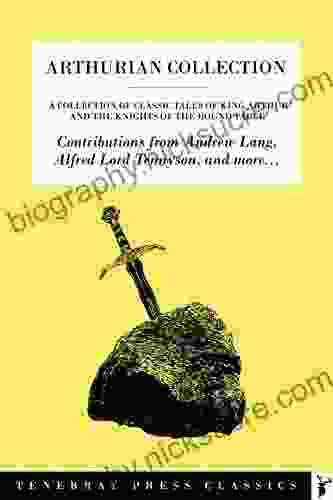
 Jedidiah HayesThe Ultimate Collection of King Arthur Tales with Original Illustrations in...
Jedidiah HayesThe Ultimate Collection of King Arthur Tales with Original Illustrations in... Kenzaburō ŌeFollow ·9.1k
Kenzaburō ŌeFollow ·9.1k Edward ReedFollow ·19.5k
Edward ReedFollow ·19.5k David Foster WallaceFollow ·8.7k
David Foster WallaceFollow ·8.7k Hamilton BellFollow ·5.8k
Hamilton BellFollow ·5.8k Rex HayesFollow ·18.8k
Rex HayesFollow ·18.8k Clayton HayesFollow ·10.8k
Clayton HayesFollow ·10.8k Foster HayesFollow ·15.1k
Foster HayesFollow ·15.1k Neil GaimanFollow ·14.4k
Neil GaimanFollow ·14.4k
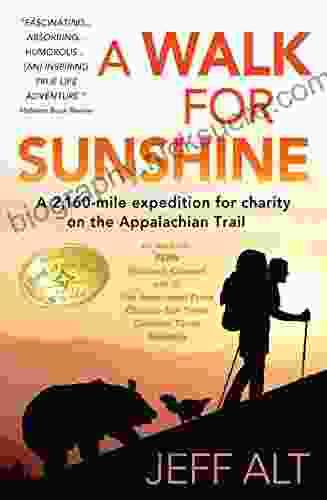
 Israel Bell
Israel BellEmbark on an Epic 160-Mile Expedition for Charity on the...
Prepare yourself for an...
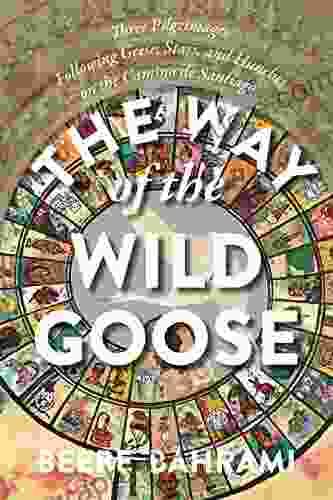
 Josh Carter
Josh CarterThe Way of the Wild Goose: A Journey of Embodied Wisdom...
The Way of the Wild Goose is an ancient...

 Allen Parker
Allen ParkerMastering the Art of Bean Fly Casting: A Comprehensive...
Fly fishing,...

 Aaron Brooks
Aaron BrooksSolving the Homework Problem by Flipping the Learning
What is flipped...

 Fletcher Mitchell
Fletcher MitchellThe Jane Butel Library: A Renewed Source of Knowledge and...
The Jane Butel...
5 out of 5
| Language | : | English |
| File size | : | 9823 KB |
| Text-to-Speech | : | Enabled |
| Screen Reader | : | Supported |
| Enhanced typesetting | : | Enabled |
| Print length | : | 571 pages |


